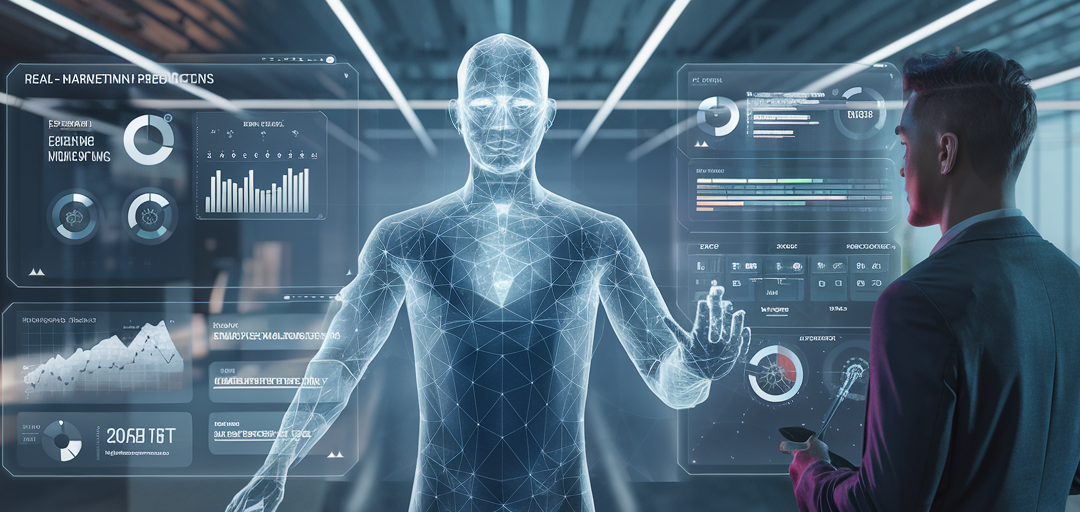A Comprehensive Analysis
Introduction
Artificial Intelligence (AI) has emerged as a transformative force in the business world, reshaping industries, redefining operational workflows, and unlocking unprecedented opportunities. As we step into 2025, AI is no longer a futuristic concept but an integral part of business strategies, driving efficiency, innovation, and competitiveness. This report delves into how AI is changing the way we do business, focusing on its impact across various sectors, the latest trends, use cases, and actionable strategies for leveraging AI to stay ahead in the digital age.
The Role of AI in Business Transformation
AI is revolutionizing businesses by enabling data-driven decision-making, automating repetitive tasks, and enhancing customer experiences. Its applications extend across industries, from healthcare and transportation to marketing and supply chain management. The potential of AI lies in its ability to process vast amounts of data, identify patterns, and provide actionable insights, thereby empowering businesses to make informed decisions and adapt to market dynamics.
AI as a Strategic Imperative
AI has evolved from being a tool for operational efficiency to a strategic imperative for businesses. In 2025, AI is playing a crucial role in high-level planning and decision-making. For instance, AI systems can predict future market trends with unprecedented accuracy, simulate campaign outcomes before launch, and optimize resource allocation in real-time. This strategic evolution is particularly evident in marketing departments, where AI is transforming the way businesses engage with customers and drive growth (Forbes, 2024).
Enhancing Operational Efficiency
AI-powered automation is revolutionizing business operations by improving productivity and decision-making through real-time analytics. By automating repetitive tasks, businesses can free up employees to focus on higher-value activities, thereby boosting efficiency. For example, AI-driven tools like chatbots enable personalized customer interactions, while predictive analytics provide insights for proactive decision-making. As a result, businesses can lower costs, increase operational efficiency, and scale operations to meet market demands (Aeologic, 2024).
Key Trends in AI for Business in 2025
1. AI-Powered Personalization
Personalization has become a cornerstone of customer engagement, and AI is taking it to new heights. By analyzing customer behavior, preferences, and interactions, AI enables businesses to deliver hyper-personalized experiences. For instance, companies like Netflix and Amazon leverage AI to recommend products and content tailored to individual preferences, thereby enhancing customer satisfaction and loyalty (Bombay Softwares, 2024).
2. Decision Intelligence
Decision Intelligence is emerging as a critical application of AI in 2025. This technology combines AI, machine learning, and data analytics to provide businesses with actionable insights for smarter decision-making. By embedding AI into critical workflows, businesses can enhance efficiency, agility, and competitiveness. For example, INFORM’s report highlights how Decision Intelligence is enabling companies to make smarter, faster, and more precise operational decisions (Supply Chain 360, 2025).
3. AI in Marketing
AI is transforming marketing by automating routine tasks, optimizing campaigns, and providing strategic insights. In 2025, AI is being used to predict market trends, simulate campaign outcomes, and enhance personalization. Marketing teams are becoming the proving ground for AI’s ability to contribute to strategic decision-making, making it an essential tool for driving growth and innovation (Forbes, 2024).
4. AI-Powered Automation
Automation driven by AI is no longer limited to simple tasks; it is now a strategic necessity for businesses. By integrating AI into automation processes, companies can streamline operations, reduce costs, and improve customer experiences. For instance, AI-powered tools are being used to optimize supply chains, enhance cybersecurity, and enable flexible, scalable operations (Aeologic, 2024).
5. Generative AI
Generative AI is reshaping industries by enabling the creation of new content, designs, and solutions. In the public sector, for example, GenAI Virtual Agents are being used to enhance efficiency and citizen interactions by automating tasks and providing accurate information based on sector-specific needs (Ecosystm Insights, 2024).
Real-World Use Cases of AI in Business
1. Healthcare
AI is enhancing diagnostic accuracy, streamlining administrative tasks, and enabling personalized treatment plans in healthcare. For example, AI-powered tools are being used to analyze medical images, predict patient outcomes, and optimize resource allocation in hospitals (Forbes, 2024).
2. Transportation
In the transportation sector, AI is driving innovation through autonomous vehicles, predictive maintenance, and route optimization. Companies like Tesla are leveraging AI to develop self-driving cars that enhance safety and efficiency (Bombay Softwares, 2024).
3. Marketing
AI is transforming marketing by enabling businesses to deliver personalized experiences, optimize campaigns, and predict customer behavior. For instance, AI-driven tools are being used to analyze viewer behavior and deliver targeted advertisements, thereby increasing engagement and ROI (ContentGrip, 2025).
4. Supply Chain Management
AI is optimizing supply chains by improving demand forecasting, inventory management, and logistics. By analyzing data in real-time, AI enables businesses to respond proactively to market changes and enhance operational efficiency (Supply Chain 360, 2025).
Challenges and Ethical Considerations
While AI offers numerous benefits, it also poses challenges that businesses must address. These include ethical concerns, workforce implications, and data privacy issues. For instance, the integration of AI in decision-making raises questions about accountability and transparency. Additionally, businesses must navigate the potential displacement of jobs and ensure that employees are equipped with the skills needed to thrive in an AI-driven world (ContentGrip, 2025).
Conclusion
AI is undeniably changing the way we do business, offering transformative solutions that enhance efficiency, innovation, and customer experiences. As we move into 2025 and beyond, businesses that embrace AI as a strategic imperative will be well-positioned to thrive in an increasingly competitive and complex market. By understanding its potential, addressing challenges, and adopting a structured approach, organizations can harness the full power of AI to drive unparalleled transformation.
References
- Aeologic. (2024, October 16). Role of AI-Powered Automation in Business Operations in 2025. https://www.aeologic.com/blog/how-ai-powered-automation-is-transforming-business-operations-in-2025/
- Bombay Softwares. (2024, December 17). AI for Business Transformation: The Ultimate Guide for 2025. https://www.bombaysoftwares.com/blog/ai-for-business
- ContentGrip. (2025, March 6). The Future of Marketing: AI Transformations by 2025. https://www.contentgrip.com/future-ai-marketing/
- Ecosystm Insights. (2024, December 3). AI’s Impact on Industry in 2025. https://blog.ecosystm.io/ai-impact-industry-2025/
- Forbes. (2024, November 12). The 6 Most Powerful AI Marketing Trends That Will Transform Your Business in 2025. https://www.forbes.com/sites/bernardmarr/2024/11/12/the-6-most-powerful-ai-marketing-trends-that-will-transform-your-business-in-2025/
- Forbes. (2024, December 3). How AI Is Reshaping the Future of Work Across Industries. https://www.forbes.com/sites/brentgleeson/2024/12/03/how-ai-is-reshaping-the-future-of-work-across-industries/
- Supply Chain 360. (2025, February 3). AI to Transform Business in 2025, INFORM Reports. https://supplychain360.io/ai-to-reshape-business-operations-in-2025-inform-report-finds/
Our mission is to build a united community that embraces the evolution of artificial intelligence collectively, recognizing that there is strength in numbers. At MANCorp AI, we believe that our collective progress defines our future.


